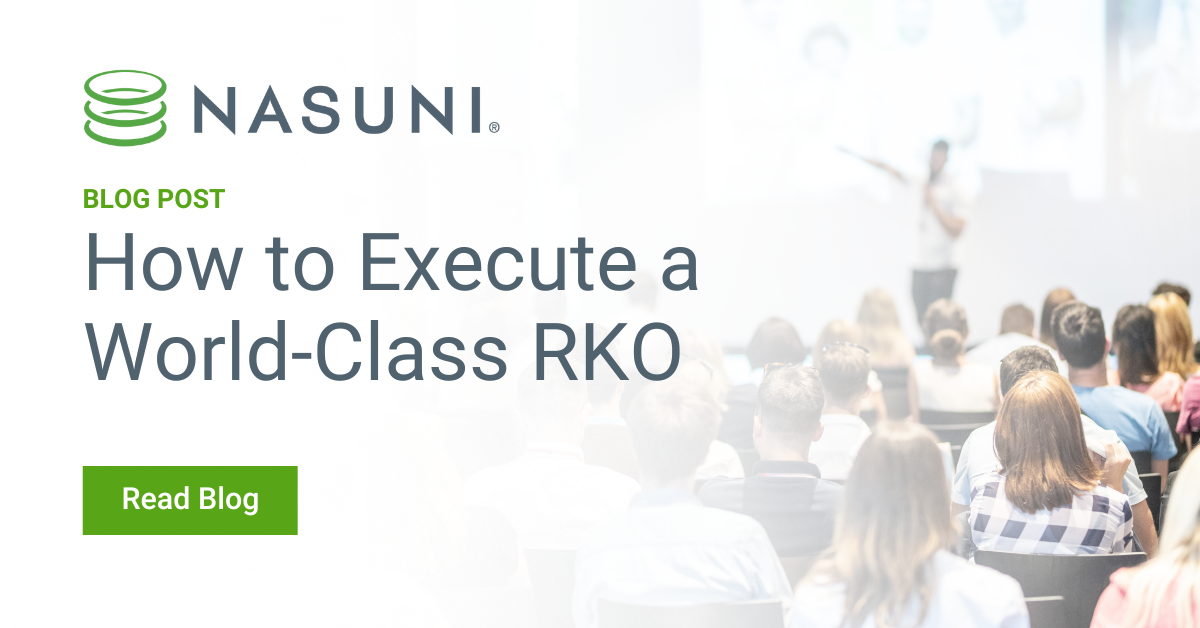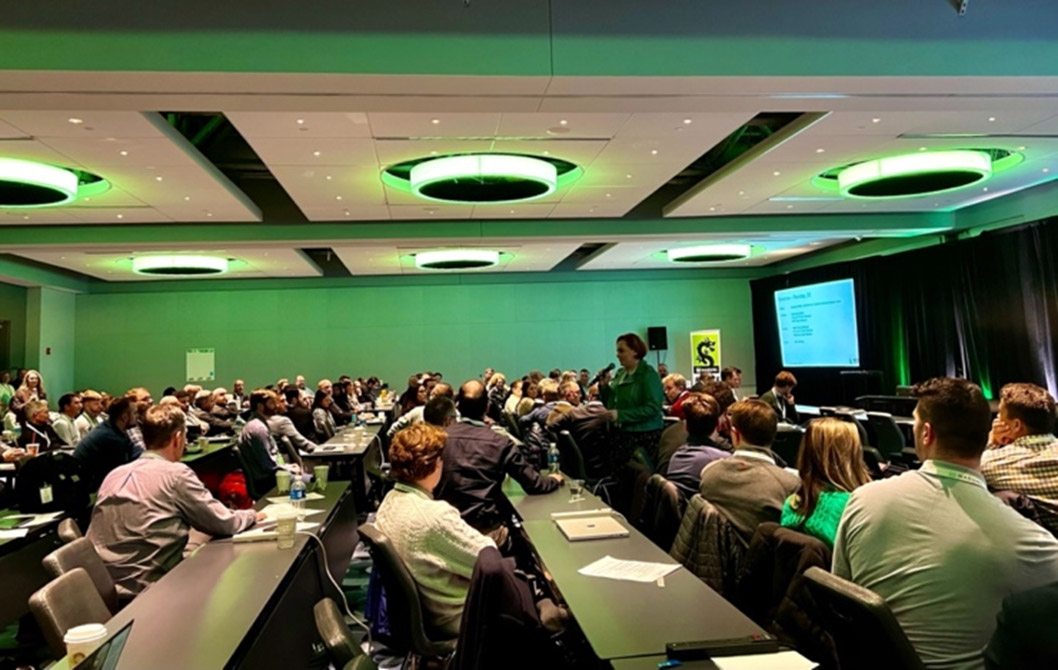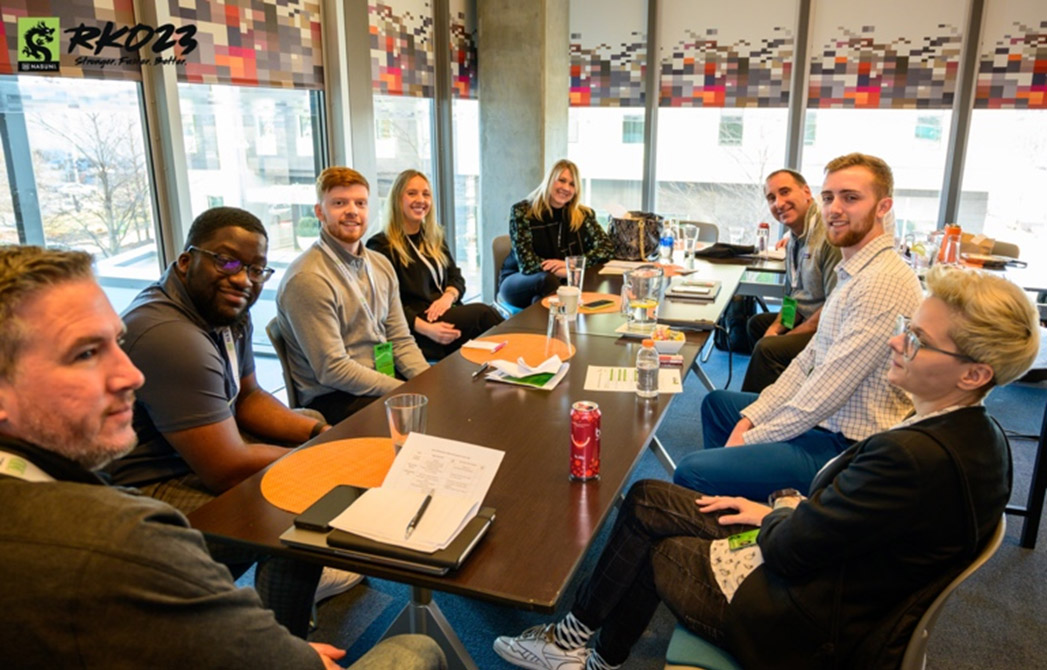How to Execute a World-Class RKO
May 03, 2023 | Jenn Haskell
Recently, Nasuni hosted its first in-person revenue kick-off (RKO) in two years. This momentous gathering was not only a blast, but also set a precedent for Nasuni events to come. Because it was such a success, we decided to share our experiences to help guide you through the ins and outs of preparing, executing, and enjoying an outstanding RKO – whether you’re planning for a small team or the entire company.
When we first sat down to discuss our RKO, one thing was clear: we wanted to inspire our employees and bring people together from across our global offices. At Nasuni, we believe deeply in the power of teamwork and collaboration. Thus, making this significant investment in our employees was a no-brainer. And, not only did it pay off in the end, but it gave us a framework for creating true engagement with the broader team.

Here’s how we did it:
- Inclusivity: RKO events are most typically seen as Sales events, but we knew we had to go bigger. We invited other Nasuni teams apart from Sales, which included 250 employees representing our Professional Services, Customer Experience, Revenue Operations, Enablement, and Marketing (Awareness, Brand, and Content) departments. After all, everyone owns quality, and everyone owns pipeline.
- Striking a balance: We had a lot to pack into our schedule, from celebrating employee achievements, discussing strategy, facilitating training and hands-on break outs, and still making sure it was fun. To achieve this, we made sure our sessions incorporated varied activity types, such as a mix of full seminar-style learning and hands-on group work.
- Preparing the team: To set the stage for RKO, we created a quick and interactive pre-learning package for our employees to complete in the month leading up to the event. This included department presentations, surveys to gather employee input,sales trainings, product and feature demos, and a refresher on Nasuni’s history. It’s important to keep in mind that there’s always someone new in the room. How can you know where you’re going if you don’t know where you’ve been?
- Creating connections: Our RKO spanned over the course of several days, so a big challenge was keeping the team engaged and ensuring they would retain what they learned. Therefore, we focused on connecting the themes, use-cases, and values among various presentations to make sure we were telling a cohesive and meaningful story.
- Internal and external voices: As you might imagine, RKOs can have a lot of presentations! Some were strictly informative, some were skits, and others were purely entertainment. However, to make sure our employees got the most out of our event, we knew we needed a diverse range of representation. Not only did we get to hear from Nasuni leadership such as Andres Rodriguez (Founder and CTO), Paul Flanagan (CEO), David Grant (President), and Pete Agresta (CRO), but we also invited real customers for a fireside chat. We even struck gold with having Greg Woolridge, the former flight leader for the US Navy Blue Angels, as our keynote speaker.
At the end of the week, we realized just how easily success could be measured; our employees had remained engaged and collaborative, even during the longest sessions. Friendships were created among offices that otherwise couldn’t connect in person. Most importantly, everyone learned a lot, while still being able to have fun.
To further ensure we hit the mark and provided attendees with the content they requested, we sent out a post-RKO survey to gather feedback. Their responses said it all: Whether it was remarking on the thoughtful planning and information they received, or thanking us for bringing everyone together after years of remote work, our employees left the RKO feeling inspired, supported, and ready to take on the new year.

Bobby Silva shares Nasuni’s efforts to aid evolving global data sovereignty requirements and compliance regulations in addition to being recognized as a Google Cloud Assured Workloads partner.
Lance Shaw shares insight on how switching to hybrid cloud solutions can be positive for both the enterprise and the planet.
Andres Rodriguez shares why enterprises need to get fit for AI and the top factors prohibiting their AI success.


